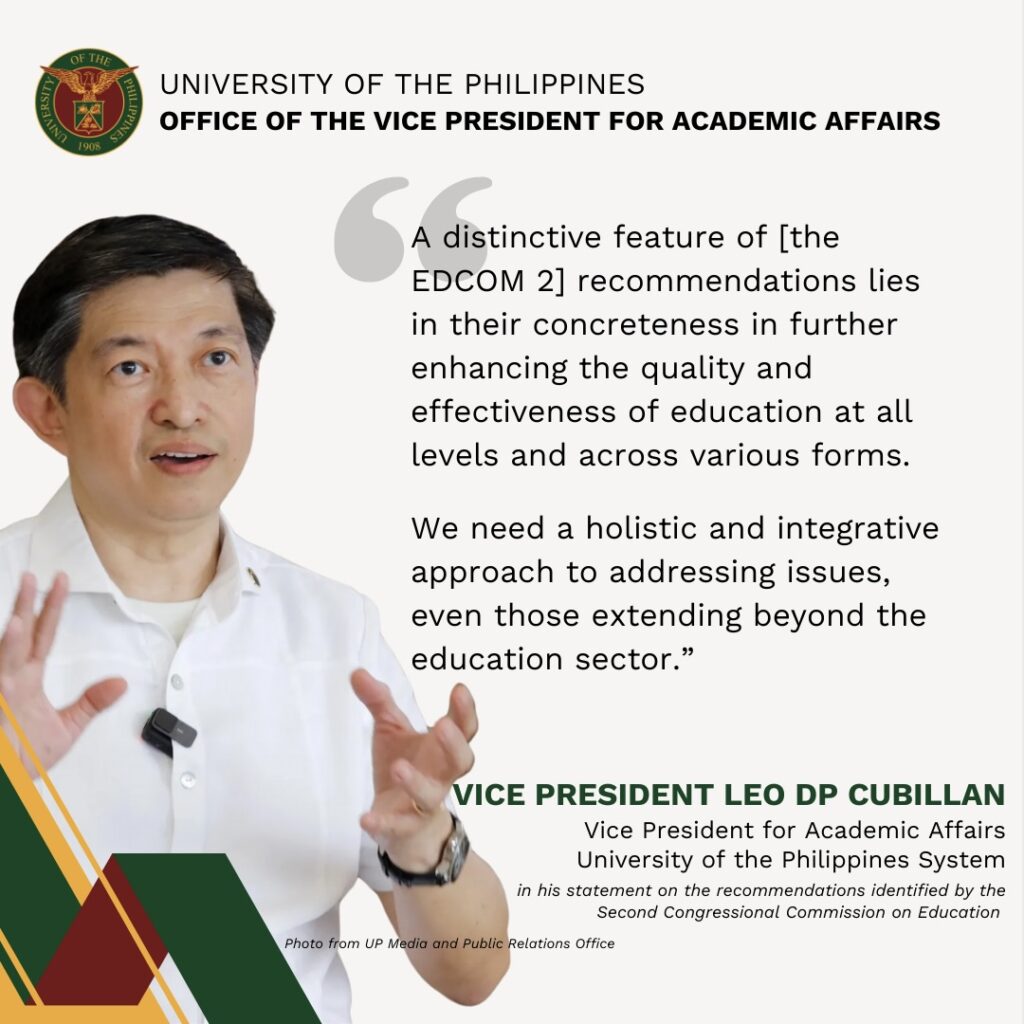Statement on the Recommendations of the Second Congressional Commission on Education (EDCOM 2)

EDCOM 2 identifies opportunities for reform with actionable recommendations formed through thorough discussions and broad consensus. A distinctive feature of these recommendations lies in their concreteness in further enhancing the quality and effectiveness of education at all levels and across various forms. These insights are relevant for diverse populations including disadvantaged children whose living conditions limit their access to essential resources, impacting their cognitive development and academic performance. The recommendations also present opportunities to further expand access to education, an issue we have also prioritized at UP. To promote diversity and inclusion, UP has recently adopted an admissions policy that balances excellence with equity, directly supporting the achievement of Sustainable Development Goal 4.
The education system in the Philippines is undoubtedly a work in progress. To make teaching and learning more meaningful, we need empirical evidence—both global and local—that can guide us in understanding what truly works. We need a holistic and integrative approach to addressing issues, even those extending beyond the education sector. UP can play a crucial role in this by conducting further research in areas where gaps exist, providing insights that can inform policies at the national scale. When closely aligned with the objectives of high-level decision-making, evidence-based recommendations have the potential to drive long-term, sustainable social and economic benefits.
While it is important to acknowledge the challenges that need to be prioritized, we must also recognize the progress we have made and the abundant opportunities for positive change that lie ahead. Such achievements, including an enrollment rate in higher education that is on a par with middle-income countries’ average, should serve as motivation to keep moving forward. We are now gradually uncovering promising answers in terms of scale, access and quality that offer hope for the future. These successes should motivate us to drive further innovation and sustained improvements across the national education system, ensuring that every student has the opportunity to reach their full potential.
– Vice President for Academic Affairs Leo DP Cubillan
University of the Philippines System
